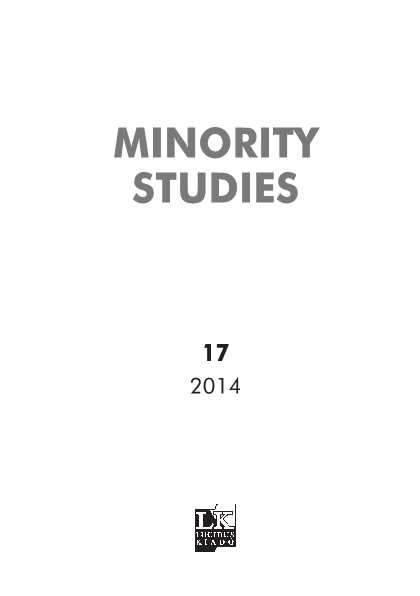Hungary’s Kin-State Politics, 2010–2014
Hungary’s Kin-State Politics, 2010–2014
Author(s): Zoltán KántorSubject(s): Government/Political systems, Inter-Ethnic Relations, Geopolitics
Published by: Lucidus Kiadó
Keywords: Hungary; hungarian nation; Hungarian organizations abroad
Summary/Abstract: Hungary’s policy for Hungarian communities abroad integrates into the system of European trends, but it has its own peculiarities. The aim is the supporting of the prosperity of compatriots living abroad and the enhancement of their relations with the kin-state. Nevertheless, concerning the level of state policies supporting communities living abroad, Hungary does not only belong to the most active countries, but it is the country which has one of the most complex state administration designed for the support of co-nationals abroad. This is reflected both at the level of legislation and decision-making (joint state forums and Hungarian-Hungarian forums established specifically for this purpose). Considering the process of this policy’s transformation into an independent sectoral policy area, Hungary is also on the top – compared with other Central and Eastern European states. The objective of the harmonized policy for Hungarian communities abroad is to integrate individuals – by means of institutions – into communities, into the nation, and to integrate communities into the political system of the concerned state. Institutionalization provides a basis for the multilevel national integration of the Hungarian nation: 1. at the level of individuals: strengthening the ties of Hungarians living abroad both with Hungary (citizenship, right to vote) and their own community (institutionalization); 2. at community level: strengthening the links of Hungarian organizations abroad with the kin-state (for instance: MÁÉRT, KMKF, etc.) and – as a community – with their own country (collective recognition and rights, autonomy); 3. the integration of the unified Hungarian nation – integrated both individually and collectively – into the European Union.
Journal: Minority Research
- Issue Year: 2014
- Issue No: 17
- Page Range: 23-32
- Page Count: 10
- Language: English

